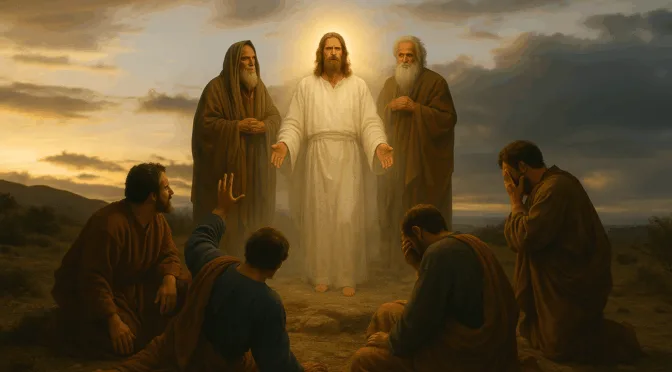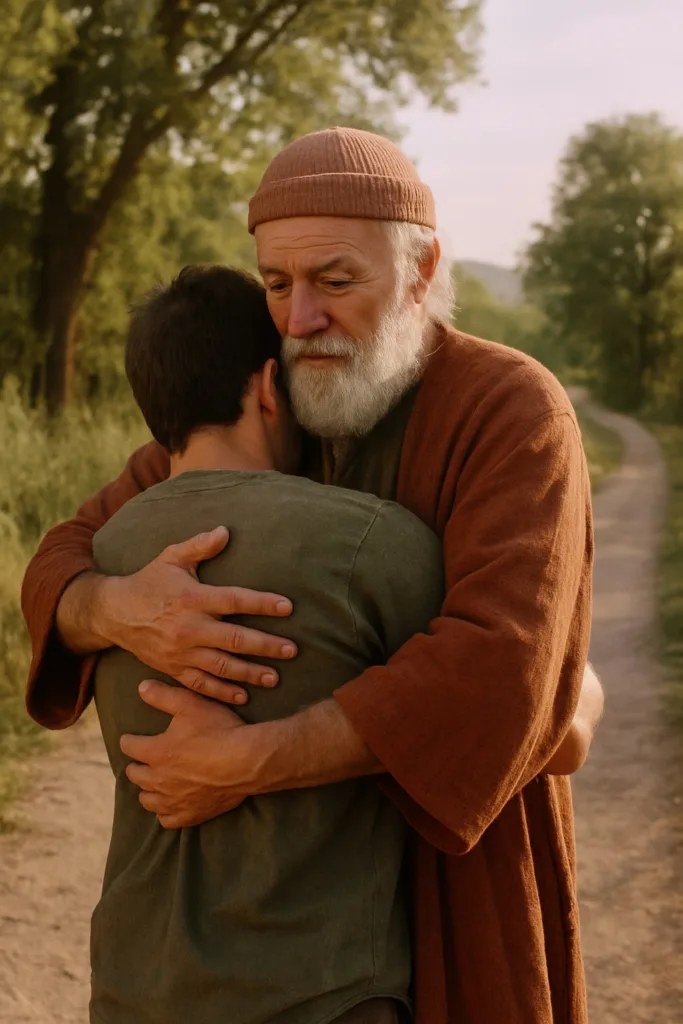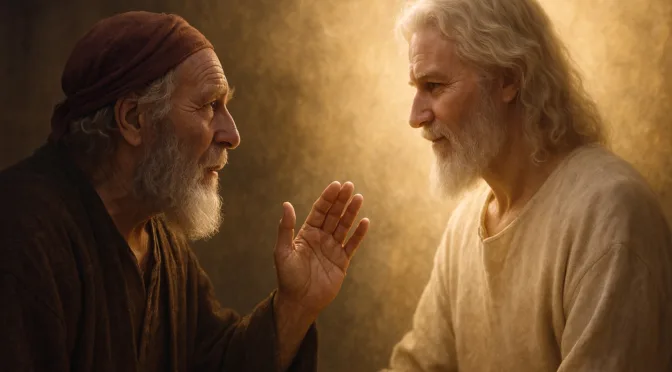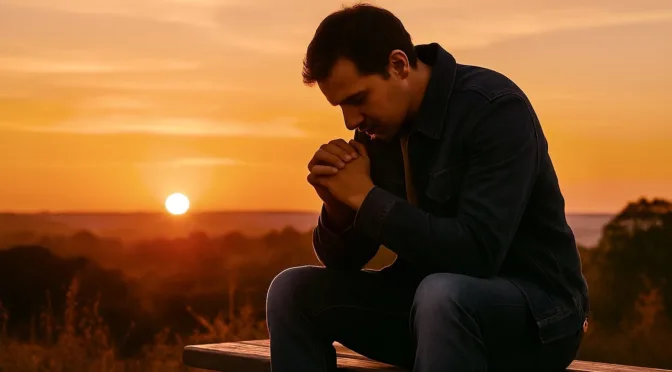Worship, Surrender, and Holy Longing
Beloved, there comes a time when the soul cannot be satisfied by blessings, accomplishments, or even answered prayers. A deeper hunger rises—a holy ache to see His face. Not just to know about Him, not just to work for Him, but to draw near, to dwell, to gaze. This cry does not come from the casual heart. It comes from those who have been awakened—who have tasted His nearness and now can live for nothing less.
This is what it means to be truly ready: “I come to You open, God. I am ready.” It is the heart posture of one who lays down every right, every title, every possession. Not just sin, but even the good and noble things that still get in the way. “Take what doesn’t belong,” we whisper, because we know—only the empty can be filled.
So we climb the mountain, like Moses once did—not to impress others, but because we cannot lead our homes, our churches, or even ourselves without His presence. It is not strategy we need, but glory. Not answers, but His voice. And when we reach the summit, we do not ask for help first—we ask for Him: “Show me Your glory.”
To seek His face is to enter into the very reason we were created. This longing burns in every soul, whether we recognize it or not. It is why we weep when worship gets quiet. It is why the world cannot satisfy. It is why we wake in the night with tears. God is calling. The whisper of eternity echoes within: “Seek My face.”
Those who answer will find that He does not come in the whirlwind or the earthquake first. He often comes in the stillness, when the songs stop, and silence settles. He speaks when we finally stop trying to perform and simply become still enough to hear. And when we do hear, we must not delay. Obedience cannot wait. For every moment we hesitate, the noise of this world rises again to drown out His voice.
This kind of pursuit always bears fruit beyond ourselves. When we see Him, we begin to carry Him. Our lives shift. Our conversations change. Our prayers become bolder, our tears more honest, our love more fierce. People around us begin to hunger, because we’ve been with Him. To seek His face is to carry His fire into every place He sends us.
But this fire must be tended with care. The one who seeks Him must also learn to walk with Him. He does not come just to overwhelm us, but to train us. He speaks wisdom and correction to those who linger. He reshapes our minds, softens our hearts, and teaches us again how to worship—not with noise, but with nearness. Not with striving, but with surrender.
Worship is not a genre. It is a lifestyle of laid-down love. It is the altar we become, not the song we sing. He teaches us how to live close—how to abide. He walks us through the valleys of disappointment and fear, and teaches us to trust Him there. He washes our feet when we feel unworthy. He carries us when we grow weary. And in every moment, He says, “Look at Me.”
The one who sees His face becomes a mirror of it. Not in glory alone, but in love, in compassion, in truth. His character begins to form in us—not just for our sake, but for the sake of a world stumbling in the dark. If we have truly seen Him, we cannot stay silent. We must become a voice in the wilderness, calling others to behold the Lamb.
Yet we do not call others to a vision we ourselves have not seen. So we return again to that quiet place. We say again, “Teach me how to worship You. Take me deeper. Speak to me again.” We hold everything loosely, so that we may hold Him tightly. And we find that the more we surrender, the more He entrusts to us—authority, anointing, intimacy.
So, come. Come up the mountain again. Bring your questions, your weariness, your hunger. But above all, bring your heart. Bring your empty hands. Let your one desire be this: “Let me catch You and see Your face.” And when He comes—and He will—you will be undone. And you will never be the same.
I sought Your face in silence deep,
Where lesser treasures fall away.
You met me not with words to keep,
But with a glance that made me stay.
You whispered love, You burned my fear,
And called me near with holy flame.
So now I live to make You known,
And carry fire in Your name.
Prayer
Abba, I come to You with open hands, laid bare and hungry. I do not seek what You give—I seek who You are. Strip away all that hinders, all that distracts, all that clings to my soul but does not belong. Teach me to worship in truth, to listen without resistance, and to obey without delay. Let me behold You and be changed. Let me carry Your voice, Your wisdom, Your mercy, and Your fire. In the name of Yeshua, I say: I am ready. Come and be seen through me. Amen.
⸻















